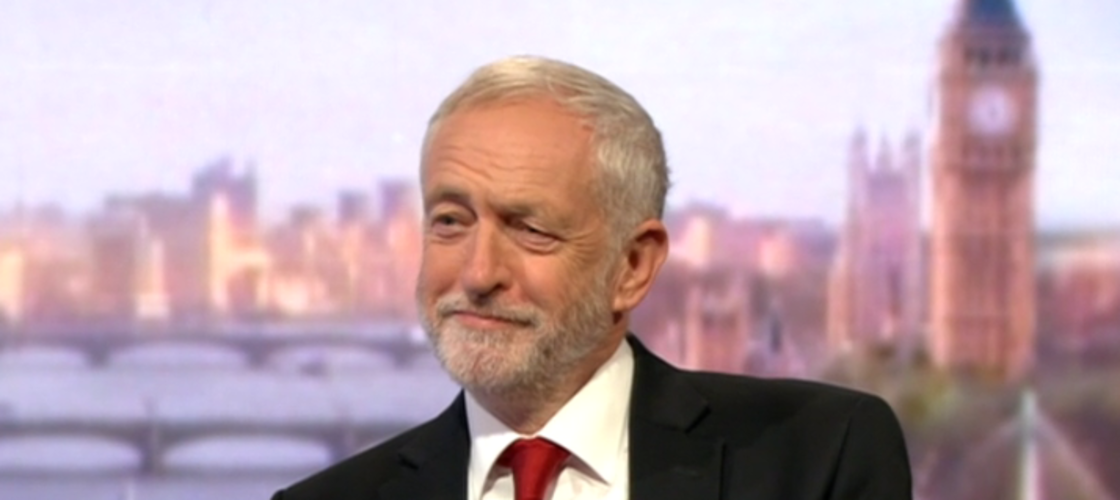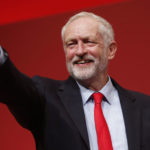
Relatively speaking, it is arguable that the Parliamentary Labour Party won the General Election on June 8th, 2017.
In real terms, of course, they didn’t. However, they did hugely better than expected. When Theresa May called the election, the Conservatives were polling at above 40 per cent, with the Labour party at times 20 points below them. Jeremy Corbyn led a campaign based on the politics of hope which seems to have resonated with much of the British public: Labour gained 37 seats, including the hotly anticipated seat of Kensington, which it took until 9pm on Friday 9th June to announce. The Labour candidate Emma Dent Coad won by just 20 votes – an unprecedentedly small margin.
So, what’s going to happen now? It seems pretty certain that Corbyn won’t be facing another leadership election – in fact, he seems more full of life than ever before. If a clearer sign was needed that Corbyn intends to continue the fight for as long as possible, he gave it to us on the Marr show on Sunday 11th June. Aside from appearing generally cheery (almost as if he really had won the election), when asked by Marr whether he was “in it for the long term”, Corbyn smugly replied “look at me, I have youth on my side”. This dry humour is not something the electorate would see from May, and it delighted many Labour voters who perhaps were expecting to be licking their wounds, feeling sorry for themselves and despairing at the performance of the Labour party. In fact, it ended up being the quite the opposite situation.
“Corbyn intends to continue the fight for as long as possible”
As for those in the Parliamentary Labour Party who are hardly Corbyn’s biggest cheerleaders, including those who attempted to oust him last year… well, it seems they don’t have much of an argument left to offer. With many of them retaining their seats based on a campaign of omitting any mention of Corbyn, instead opting to run a campaign based on local issues, it isn’t clear what their positions are now. Do they back Corbyn, at the risk that further down the line history repeats itself and the polls begin to show a decline in support for the Labour party? Or do they vehemently defend their position, whilst still finding a way to understand that Labour’s performance was in no small part due to Corbyn himself?
Corbyn’s front bench is very much made up of his allies: with Diane Abbott and John McDonnell by his side, he seems a force to be reckoned with. But he will need to widen the scope of his front bench to fully appease those in the party who don’t fully believe in the direction Corbyn has taken the party. To retain the support Labour have gained from those from a very different position on the left of the political spectrum, there needs to be some movement on the front benches.
Labour’s certainty in the days following the General Election that they were prepared to form a minority government shows just how resolutely they believed they were in a position to govern. However, the numbers said something different: even if Labour had been granted the ability to form a minority government, their MPs combined with the ad hoc support of the single Green Party MP, the 12 Liberal Democrat MPs, the 35 Scottish National Party MPs and even the 4 Plaid Cymru MPs would have fallen 13 seats short of the 327 MPs made up of the Conservative Party and the Democratic Unionist Party. Labour’s performance at the General Election was a huge success but they are not yet ready to govern. It is possible, however, that their success, combined with the subsequent opinion polls showing both the Labour party and Corbyn polling higher than the Conservatives and May, could lead to something big in the next few years. Nothing has shown Corbyn’s ability as a leader more clearly than in the aftermath of the Grenfell Tower tragedy: in these circumstances Corbyn behaved like a leader, whilst May’s decision to speak only with the emergency services showed her to be detached from ordinary people and ignorant of their plight.
“Corbyn behaved like a leader, whilst May’s decision to speak only with the emergency services showed her to be detached from ordinary people and ignorant of their plight”
Labour didn’t talk much about Brexit during the election campaigning – they preferred to stick to their safer territory of cuts to public services and education. This, however, didn’t seem to do them much damage – it seems that the public really did have other concerns aside from Brexit. The fact that Labour’s position on Brexit still isn’t abundantly clear, however, remains an issue. As something comprising possibly the biggest constitutional change in recent history, it is vital that Labour can effectively counter the Conservative party in their Brexit negotiations. For this it is imminent that they have a clear position.
It also can’t be ignored that there was a huge turnout of young people voting, many for Labour, which would have made a significant difference. This will set a precedent for future elections, and we must hope that those young people who voted for Labour won’t become disengaged because this time it wasn’t quite enough for Labour to gain victory. The youth vote is vital for Labour, and with the demise of the Liberal Democrats made even clearer with the former leader Nick Clegg losing his seat to Labour, this is really something the party can capitalise on. This is not least because gaining the youth vote early will hopefully set many young people onto a path of political engagement and involvement, and if Labour continue to appeal to the public on a basis of hope, unity and the possibility for a better future, they can create lifelong Labour voters from the youth of today.
This could well be the beginning of the resurgence of the Labour party, and whenever the next General Election comes around (whether this year, next year, or if we’re lucky, even longer than that), there is a high possibility, as things currently stand, that Labour could win that election. Then we could be looking at a very different landscape of the United Kingdom, most probably one which will have to make a renewed effort to find its place in an ever-changing global political environment.



[…] click here to find out why Becca McAuley believes it’s wrong to write off Corbyn’s Labour […]
Brilliant article. Well informed with the addition of the author’s own views.